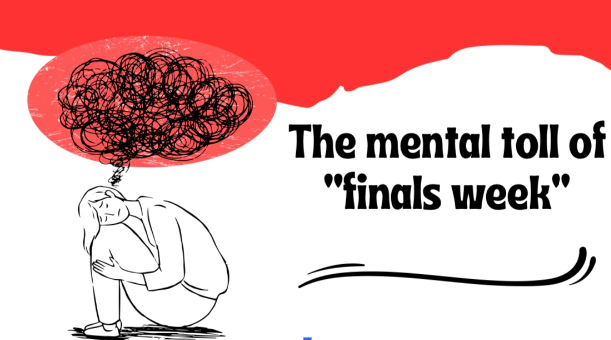Finals Week, an almost universally dreaded period in the calendar, brings tension to schools worldwide. Students, overwhelmed by the demands of multiple high-stakes exams, often find themselves in a tiring cycle of stress and anxiety. While this intense pressure is frequently dismissed, it raises concerns about student well-being and the effectiveness of our educational systems.
The root of finals week stress lies in the volume of material students are expected to master by the end of a term and the high expectations placed upon their performance. A study by the American Psychological Association found that academic pressure is the top stressor for adolescents, with 83% of teenagers citing school as a significant source of stress. The culmination of this stress during finals week can have severe repercussions on students’ mental and physical health.
Research indicates that heightened stress levels during exams can lead to anxiety disorders and depression. According to a report by the Anxiety and Depression Association of America, stress-related disorders are prevalent among students, with many experiencing panic attacks, severe anxiety, and depressive symptoms during exam periods . This psychological burden not only hampers academic performance but also affects overall quality of life.
Physical health is equally impacted. The National Institutes of Health revealed that a majority of college students experience greater than average stress, and nearly a third report that stress negatively affects their academic performance. The physical manifestations of this stress can include sleep disturbances, weakened immune systems, and even long-term health issues like hypertension and gastrointestinal problems.
In response to these concerns, some institutions have implemented measures to alleviate the stress of finals. Programs offering mental health support, stress management workshops, and changes in exam formats to reduce pressure are steps in the right direction. For instance, Stanford University provides “Dead Week,” a period before finals where no major assignments or exams are scheduled, allowing students to focus on studying and self-care. Similarly, the University of Michigan offers therapy dog sessions, yoga classes, and peer support groups to help students manage stress during finals.
However, these efforts, while important, may not be sufficient. The competitive nature of academic environments often enforce a culture where high grades are equated with success, meaning the stress associated with finals is crucial for student success.
The stress of finals week is an issue that needs attention from schools across the nation and from educators, policymakers, and society at large. By recognizing the impact of this stress and implementing support systems, we can create an educational environment that not only prioritizes academic excellence but also helps the mental and physical health of students.













